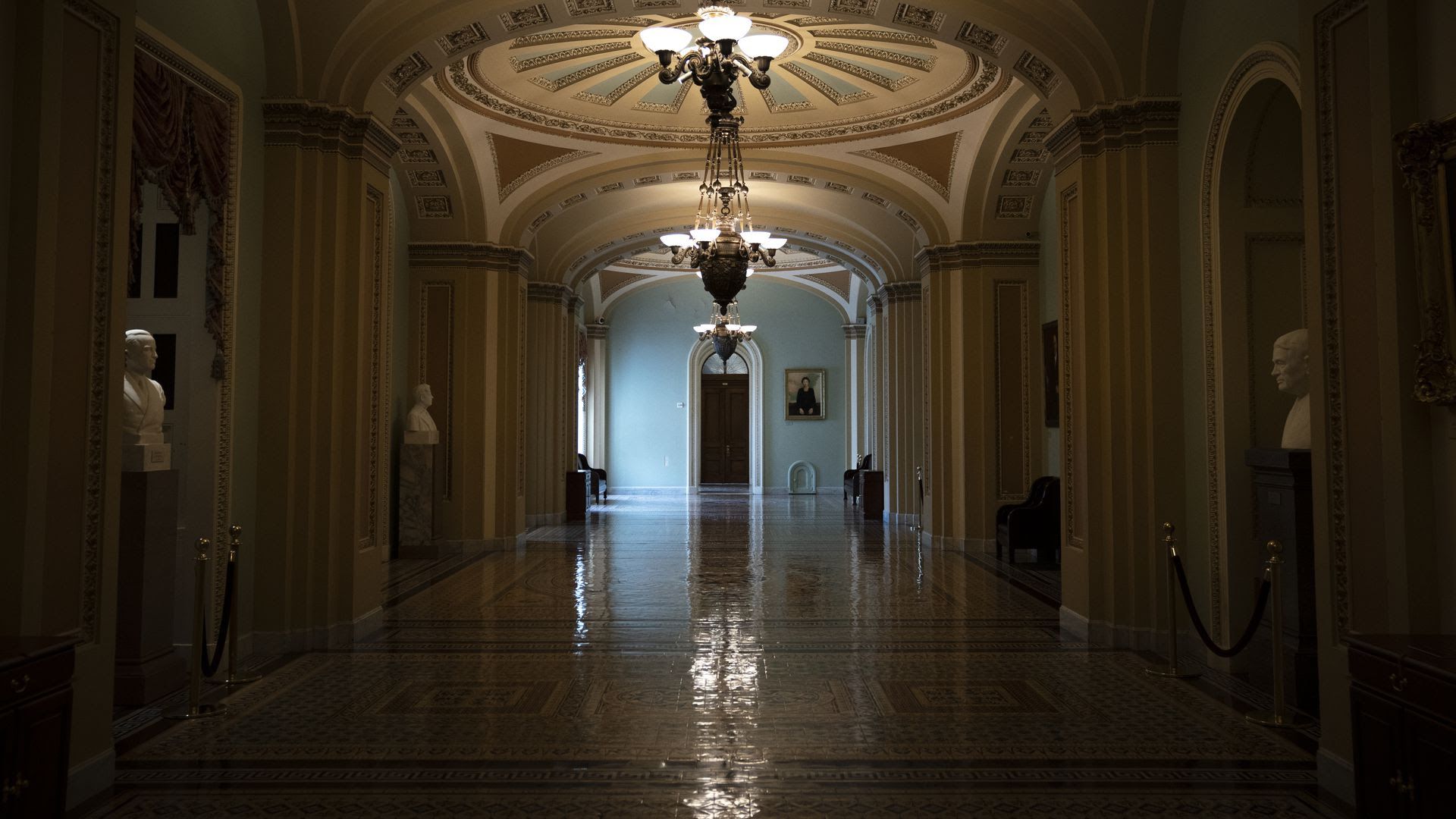Why Congress is lagging on remote voting amid the coronavirus pandemic
Add Axios as your preferred source to
see more of our stories on Google.

Empty hallways outside the U.S. Senate. Photo: Drew Angerer/Getty Images
Legislatures around the world have been experimenting with remote deliberation during the pandemic, but Congress still insists on in-person voting.
Why it matters: With social distancing rules in place, any physical gathering of a legislative body for voting almost certainly presents a health threat. Unless secure remote voting is permitted, Congress must either largely cease its work — or endanger its members.
What's happening: Senate Majority Leader Mitch McConnell announced on Thursday that he would be reconvening the Senate in person starting today — even though the Capitol physician doesn't have enough COVID-19 tests for all senators, as my Axios colleagues reported.
- Speaker Nancy Pelosi, by contrast, reversed plans to reconvene the House after Congress' attending physician advised against it. But that means there will be little House members can do.
- McConnell and Pelosi jointly agreed to decline the Trump administration's offer of 1,000 rapid coronavirus tests.
Other legislatures in the U.S. and globally have gotten around social distancing by experimenting with remote voting.
- Over 100 Pennsylvania legislators have been working and voting remotely for the past several weeks. According to FiveThirtyEight, it's mostly worked well — at least once legislators upgraded to computers capable of running Zoom.
- About 280 members of Canada's parliament recently connected via Zoom to question the government on its response to COVID-19. For Canadians, the most noteworthy part was the chance to rate their MP's living rooms.
What they're saying: Republican Sen. Rob Portman has been a leading voice for remote voting. On Thursday he convened what is believed to be the Senate's first virtual roundtable — appropriately enough, on the subject of remote voting.
- Portman and Democratic Sen. Dick Durbin have proposed a resolution that would allow the Senate majority and minority leaders to permit secure remote voting temporarily during a crisis. Security measures would include identity authentication before voting and verification afterward, along with encryption.
- "We need this tool in our toolbox moving forward," Portman told Axios. "Today, we face a pandemic. Tomorrow, there could be a new national crisis, preventing members from convening safely."
The bottom line: If the rest of America can get over its Zoom fatigue, Congress can too — and get back to the work of the American people.
